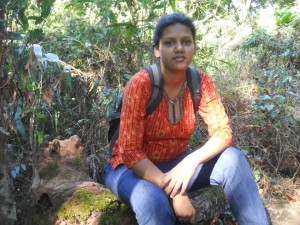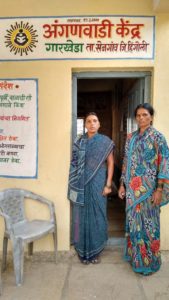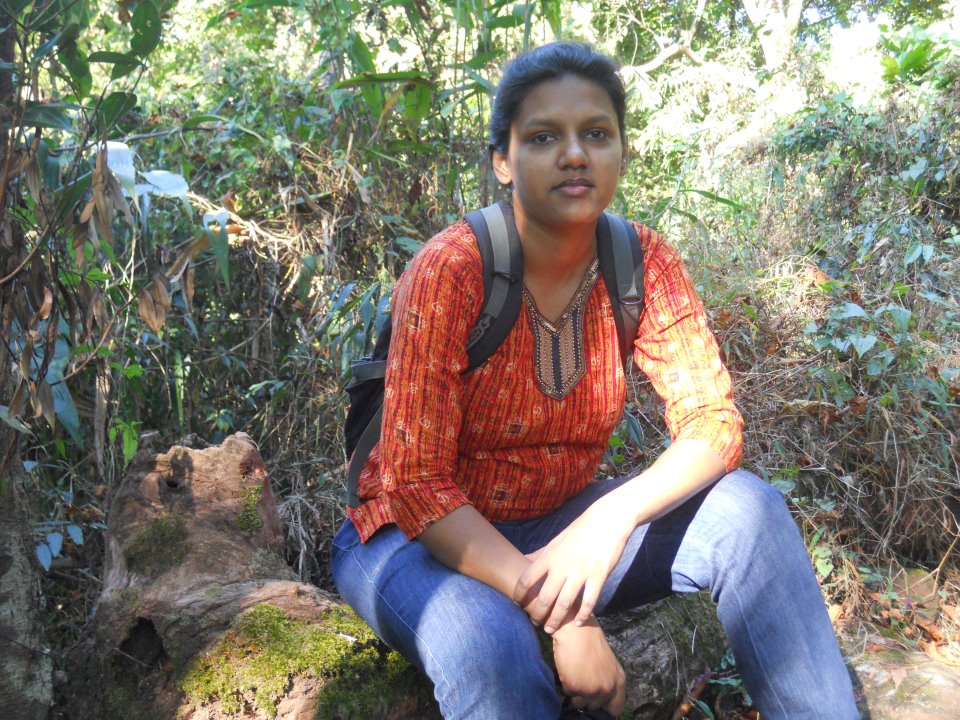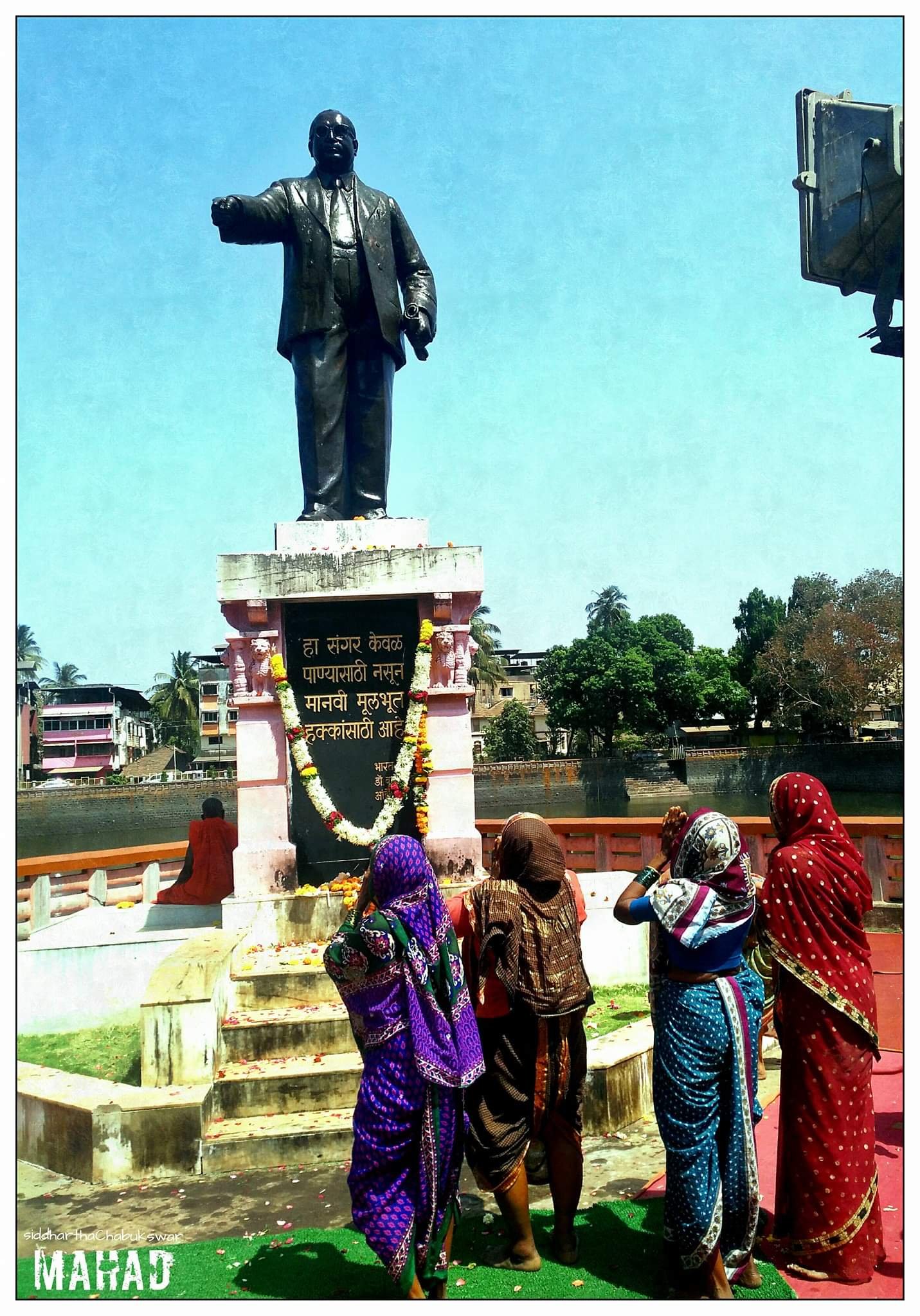Rahi Gaikwad
 Dalit women often find themselves at the receiving end of the brahminical State. Many also challenge the very structures of oppression in their own spaces, but not without reprisal from the State. During my travels in some of the villages in Maharashtra in April, I came across such women, whose struggles form the stock of the Dalit movement. This article is an excerpt from two reports published on Round Table India, the full versions of which can be found here and here.
Dalit women often find themselves at the receiving end of the brahminical State. Many also challenge the very structures of oppression in their own spaces, but not without reprisal from the State. During my travels in some of the villages in Maharashtra in April, I came across such women, whose struggles form the stock of the Dalit movement. This article is an excerpt from two reports published on Round Table India, the full versions of which can be found here and here.
Washim’s Women
In the high heat of Vidarbha’s summer, Sugandhabai Tajne returned to her village Pangri Nawaghare in Maharashtra’s Washim district. “Don’t you take me away! I am not going anywhere!” declared the 80-something Dalit woman as soon as she saw us. She had just returned from an exhausting trip to a district hospital with her husband, who had an eye problem. It took a while to convince her that no one there was from the police or government.
Over 20 people from the Buddhist community and nearly double the number from the Marathas were served externment notices on the eve of Ambedkar’s anniversary. Among those externed were Paryagbai Wankhede, Janabai Khadse and Sugandhabai Tajne, a trio of old Dalit women roughly in the age group of 60 to 90. The notices were served under section 144 of the Code of Criminal Procedure (CrPC), which gives power to the authorities to issue an order in cases of nuisance or apprehended danger.
“The superintendent of police and the Malegaon police [local police station] have proposed restrictions on being within or entering the jurisdiction of the Malegaon police station from 8 a.m. of April 14, 2016, to 8 a.m. of April 16,” the notice said.
The three women, who also have cases of unlawful assembly against them, were amused at the official assessment of their ability to create nuisance. “The police asked us to leave the village. They accused us of drinking. Nearly 15 other women have been issued notices,” said Paryagbai.
Behind the bulk of externment notices lies a history of caste violence dating back to 2007 and the pieces of paper try to maintain a precarious peace between Dalits and Marathas. With a population of 3,000, comprising 2,400 people of the powerful Maratha community, 400 Dalit Buddhists and 100 others, Pangri Nawaghare is a small village, but here caste animosities runs deep. Social relations festered in the village especially in 2007, when an Ambedkar jayanti procession was intercepted. District authorities dismissed the caste hostilities and scuffles as the result of political manipulations. While externment notices are swiftly drafted, compensation for the violence suffered remains a far cry.
“I was the one who was beaten with thick sticks in 2013. I was abused with words such as ‘Maharde’ and ‘Dhede’ [references to lower castes] and I am the one to be booked in a case? I was in jail for two days and had to shell out Rs. 15,000 for my bail. And now this notice,” said 65-year-old Paryagbai. Since 2007, Dalits here have been petitioning the authorities for permission to hold a procession to commemorate the legacy of the architect of the Constitution. Like every year, this year too, they were denied that permission due to law and order concerns. When the whole country was celebrating Dr. Ambedkar’s 125th birth anniversary, this village decided not to celebrate the occasion.
An official source, who did not wish to be named, said, “I agree the Buddhists are deprived of their legal rights. They should be allowed to hold a procession. This is a democracy, but the top authorities are not willing to take the risk. Having said that, no community is above blame. The Buddhist women sing songs such as ‘Patil [reference to Maratha] women wear shimmering saris’ and abuse Brahmins. Why would the Marathas not react? You can praise your religion, but why do you criticise other religions? On the other hand, the Marathas conduct ‘bhagwats’ [religious discourses] in the temples at the time of Ambedkar jayanti. None of their members turn up for the peace committee meetings. There is only one man from the Maratha community who says he will not let the Buddhists hold a procession till his death. But that does not mean the entire community is like him. This has to do with illiteracy. And how is that anger is displayed only at the time of Ambedkar jayanti? The Buddhists work in the fields of the Marathas, they ride their motorbikes to go to the market. All these interactions are smooth all year round, except during the jayanti period. And after it is over, they go back to their regular exchanges. This is such strange behaviour!”
The central government’s efforts to acquire Ambedkar’s house in London cut no ice in this village. “We don’t know what is happening in a foreign land. Why is nothing happening in this village?” asks a villager.
Assertive Anganwadi Worker
 In Hingoli district’s Garkheda village, a Dalit woman Mathura Khillare did the unthinkable. In her capacity as an Anganwadi worker, she objected to waste water being directed from the sarpanch’s house to the Anganwadi footsteps two years ago. The backlash that followed drove the four Dalits houses in the village to the edge of survival.
In Hingoli district’s Garkheda village, a Dalit woman Mathura Khillare did the unthinkable. In her capacity as an Anganwadi worker, she objected to waste water being directed from the sarpanch’s house to the Anganwadi footsteps two years ago. The backlash that followed drove the four Dalits houses in the village to the edge of survival.
The Marathas pulled out their children from the Anganwadi, leaving Khillare with only one Dalit and three savarna children. The sarpanch petitioned the authorities to dismiss her and her helper Vidya Tayde from service. The village imposed a boycott on the Dalits, whose impact is felt even today as Dalit men are still not given work in the fields.
“They even stopped taking ‘sukdi’ [a wheat-based supplement given to Anganwadis for distribution among children up to six years and pregnant women]. We were not allowed to draw water from the well. We used river water for two years. They would defecate in the small ditches we made on the river bank to collect water. So next day we would dig fresh ditches. We struggled a lot for water,” said Khillare, who was awarded the Rajmata Jijau Excellence award in 2012 for her work.
It was a heavy price for one act of assertion. Today her fate hangs in balance.
~~~
Rahi Gaikwad is an independent journalist based in Mumbai

